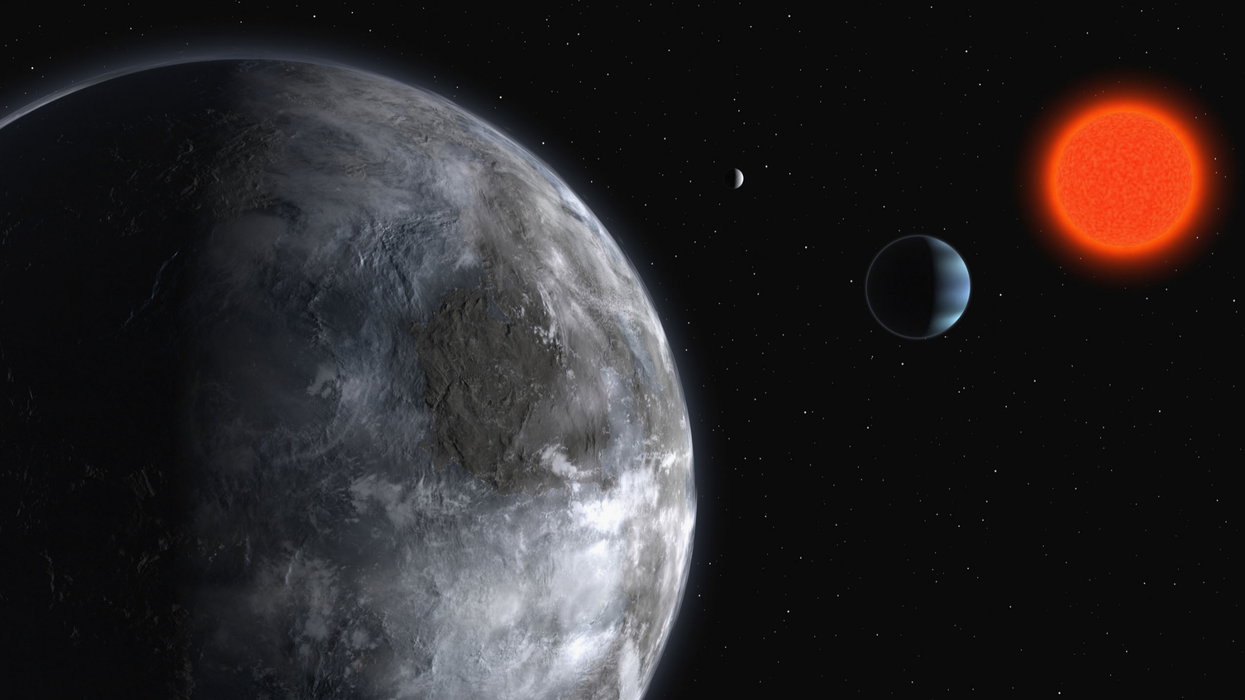Science & Tech
Alex Daniel
Dec 21, 2023

The subsurface oceans could hint at the presence of alien life
Getty
Nasa has found 17 planets that it thinks could have secret oceans lurking below the surface, making them top candidates for alien life.
The 17 exoplanets – that means planets outside of our own solar system – all have icy shells that could be hiding flowing water, the agency thinks.
A recent study published in The Astrophysical Journal shows how researchers have analysed the planets.
They wrote: “We have estimated total internal heating rates and depths to possible subsurface oceans for 17 planets that may be cold ocean planets, low-mass exoplanets with equilibrium surface temperatures and/or densities that are consistent with icy surfaces and a substantial H2O content.
“Like the icy moons in our outer solar system, cold ocean planets may be astrobiologically significant worlds that harbor habitable environments beneath their icy surfaces.”
Of course, a planet doesn’t necessarily have alien life on it just because there is water there.
The presence of alien lifeforms could also be governed by the distance from the star the planet orbits, as well as the atmospheric conditions.
Nonetheless, the possibility of water means that the planets are among the most promising places we know to start looking for signs of life.
One of the main differences between all the exoplanets in the study and Earth is that they're much colder than our own planet.
The host stars they orbit don’t give out as much heat as we get from our own Sun, and it’s thought that the planets are receiving internal heat instead.
Lynnae Quick of Nasa's Goddard Space Flight Center said: “Our analyses predict that these 17 worlds may have ice-covered surfaces but receive enough internal heating from the decay of radioactive elements and tidal forces from their host stars to maintain internal oceans.”
With catchy names like Proxima Cen b and LHS 1140 b, the planets may drop off the general public’s radar for a while if nothing crops up.
But if there’s enough volcanic activity within, and some water, we could end up hearing a lot more about these far away rocks in the years to come.
How to join the indy100's free WhatsApp channel
Sign up to our free indy100 weekly newsletter
Have your say in our news democracy. Click the upvote icon at the top of the page to help raise this article through the indy100 rankings.
Top 100
The Conversation (0)












